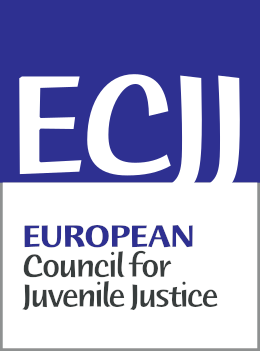 Launched by the International Juvenile Justice Observatory in 2009, the European Council for Juvenile Justice (ECJJ) was a network of juvenile justice institutions and experts coming from twenty-eight Member States of the European Union. It acted as a pool of experts providing knowledgeable inputs in the field of juvenile justice whether to assist the IJJO in developing inspiring initiatives and researches or to contribute to the work of European institutions such as the European Commission or the Council of Europe.
Launched by the International Juvenile Justice Observatory in 2009, the European Council for Juvenile Justice (ECJJ) was a network of juvenile justice institutions and experts coming from twenty-eight Member States of the European Union. It acted as a pool of experts providing knowledgeable inputs in the field of juvenile justice whether to assist the IJJO in developing inspiring initiatives and researches or to contribute to the work of European institutions such as the European Commission or the Council of Europe.
Divided into four sections, the ECJJ relied on the expertise of academics, professors and institutes with an extensive knowledge in juvenile justice, children’s rights and / or the fight against social exclusion; on NGO representatives working on the ground and on a daily basis with children in conflict with the law; on public administrations such as Ministries or Departments of Justice, Ombudspeople for Children and other representatives of national agencies in charge of child-friendly policies; and on judiciary professionals, such as judges, prosecutors and judicial staff, in contact with children and young adults.
Regularly, the four sections of the European Council for Juvenile Justice met regularly to participate in initiatives developed with the coordination of the IJJO. To this extent, since its creation, the European Council for Juvenile Justice has met five times: once by section in 2009 (in Paris and Brussels); then in Rome in 2010, London in November 2012, Brussels in December 2014, and Valencia in February 2017.
In five years, the European Council for Juvenile Justice developed five researches: three green papers on child-friendly justice, a white paper addressing the consequences of the crisis on child-friendly justice, and an EU Model on Restorative Justice for Children and Young People developed with a team of European experts.
Moreover, the ECJJ contributed to European campaigns, assisted the IJJO in developing valuable inputs and overall participated in improving juvenile justice throughout Europe.